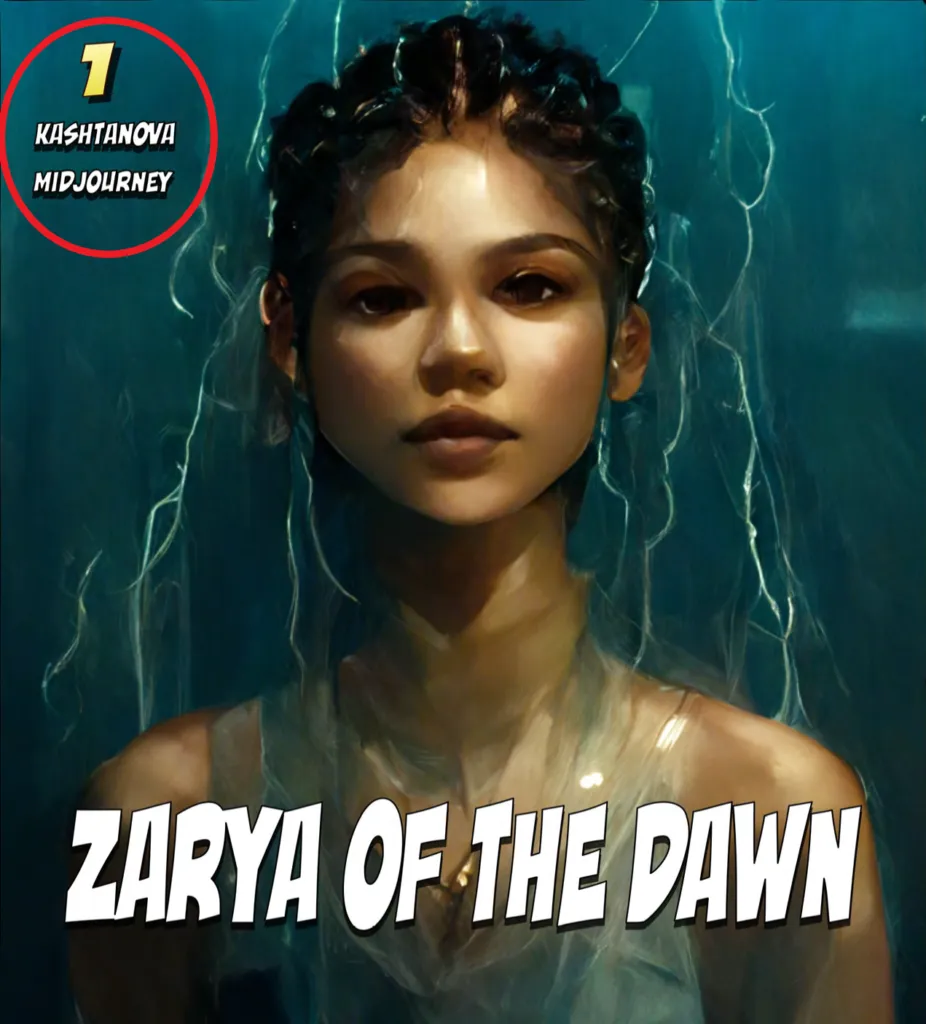Copyright Office Partially Cancels AI-Created Work
On February 21, 2023, the U.S. Copyright Office issued an unusual ruling partially cancelling the copyright registration originally issued in September 2022, essentially cancelling any part of the work made by an AI machine. A new registration will be re-issued as to the portions in which the human authorship was confirmed, including the selection, coordination, and arrangement of the work’s textual and graphic elements. This ruling continues the ongoing debate over what should be a closed subject on the issue of copyright protection for technology-assisted creative works.
The work in question is Zarya of the Dawn, a graphic novel with a human author named Kristina Kashtanova. The graphic novel tells the tale of Zarya, a non-binary individual who awakens to a post-apocalyptic New York and begins a cosmic journey to rediscovery. It’s a short 18 page book, but on September 15, 2022, she submitted a copyright application, and included the deposit which contained the names “Kashtanova” and “Midjourney” in the upper left corner of the first page. There is no other area of the novel that evidences authorship.
 Kristina Kashtanova’s graphic novel, Zarya of the Dawn, but note the “authors” are indicated as Kashtanova and the Midjourney AI software.
Kristina Kashtanova’s graphic novel, Zarya of the Dawn, but note the “authors” are indicated as Kashtanova and the Midjourney AI software.
The Copyright Office, not noticing this rather covert manner of displaying authorship, issued a registration, No. Vau001480196. As the Copyright Office noted, “Midjourney” only appears on the cover page of the novel and there is no indication of the intent or meaning of the word. Additionally, the application itself revealed no mention that artificial intelligence was used to create the novel.
What is Midjourney?
According to its website, Midjourney AI is an independent, self-funded lab focused on AI to “explore new mediums of thought and expand[] the imaginative powers of the human species.” It is sponsored as on the Discord chat platform.
What is the Copyright Office’s Issue with Authorship?
The Copyright Office got wind of social media postings made by Kashtanova that she created the novel using an AI system. It sent a letter to Kashtanova on October 28, 2022, informing her that the registration would be cancelled unless she provided additional evidence supporting the contention that she was the sole human author of the work. On November 21, 2022, the Office received a response from Kashtanova contending that she authored the entire work, the Midjourney AI system was just a tech tool to create the work, and that the registration should not be cancelled. However, she also argued, in the alternative, the portions of novel that she authored due to her human endeavor should not be cancelled.
The legal standard for copyright registration is that a creative work must be an original work of authorship fixed in a tangible medium of expression.1 Citing Feist, originality requires independent creation and sufficient creativity.2 Independent creation requires just that: independent creation by an author. Sufficient creativity is a very low bar, albeit an undeterminable one.3 The Feist phone book lacked creativity to merit copyright protection, but a graphic novel somewhat co-authored by an AI machine possibly could.
[Congress shall have power] to promote the progress of science and useful arts, by securing for limited times to authors and inventors the exclusive right to their respective writings and discoveries.
Patent & Copyright Clause, U.S. Constitution, Art. I, Sec. 8, Cl. 8
A work of authorship is limited to the creations by a human being. The Office cited a case which attempted to claim a non-human spirit as an author, which was rejected by the 9th Circuit.4
[An author is] he to whom anything owes its origin; originator; maker; one who completes a work of science of literature.
Barrows-Giles Lithographic Co. v. Sarony, 111 U.S. 53, 57-59 (1884).
In other words, anything created by the Midjourney AI system would not be eligible for copyright protection.
What is protected in Zarya of the Dawn?
Turning to the novel, the Office determined that since the text was entirely created by Kashtanova, it would be subject to copyright registration. Further, since Kashtanova selected and arranged the text and images in the final format of the novel, those would be protected, as well.
However, the images, which were created using the Midjourney program, were not therefore works of authorship and not copyright-eligible. The Midjourney AI system is started through a series of prompts delivered by human input, in which the AI system outputs the image. Kashtanova attempted to argue that she created the images because she directed the prompts to the Midjourney system. This was turned down by the Office.
The fact that Midjourney’s specific output cannot be predicted by users makes Midjourney different for copyright purposes than other tools used by artists.
U.S. Copyright Office, Letter to Kristina Kashtanova Partially Cancelling Registration No. Vau001480196, p. 9, (Feb. 21, 2023).
Further, she argued that using the Midjourney system is very similar to other computer-based tech tools, like Adobe Photoshop, but the Office noted that the Midjourney output could not be predicted in advance by the users, and therefore, was output entirely created by a machine. She further argued that she did touchups on the Midjourney output images by using Photoshop, including enhancement of the main character’s lips and development of age lines in an elderly supporting character’s face. However, the Office found the lip enhancements, as an example, were insufficiently creative to be deemed human authorship, and it could not be determined what aging was created by the Midjourney system and what was enhanced by Photoshop to distinguish the non-authored versus the authored portion of the work.
As such, the Office cancelled the registration as to the images.
This serves as a cautionary tale for artists who rely on AI software to create their works. The Copyright Office has already denied registration for an entirely AI-authored work (see letter denying registration to DABUS/Thayer’s “A Recent Entrance to Paradise”). For more information on copyright registration, AI and IP as a topic, and other issues in copyright law, please contact Yonaxis I.P. Law Group.
Footnotes
-
See 17 U.S.C. §102(a). ↩
-
See Feist Publ’ns, Inc. v. Rural Tel. Serv. Co., 499 U.S. 340, 345 (1991). ↩
-
Id. ↩
-
Urantia Found. v. Maaherra, 114 F.3d 955, 957-59 (9th Cir. 1997). ↩

Brent T. Yonehara
Founder & Patent Attorney
Founder Brent Yonehara brings over 20 years of strategic intellectual property experience to every client engagement. His distinguished career spans AmLaw 100 firms, specialized boutique I.P. practices, cutting-edge technology companies, and leading research universities.
More About Brent